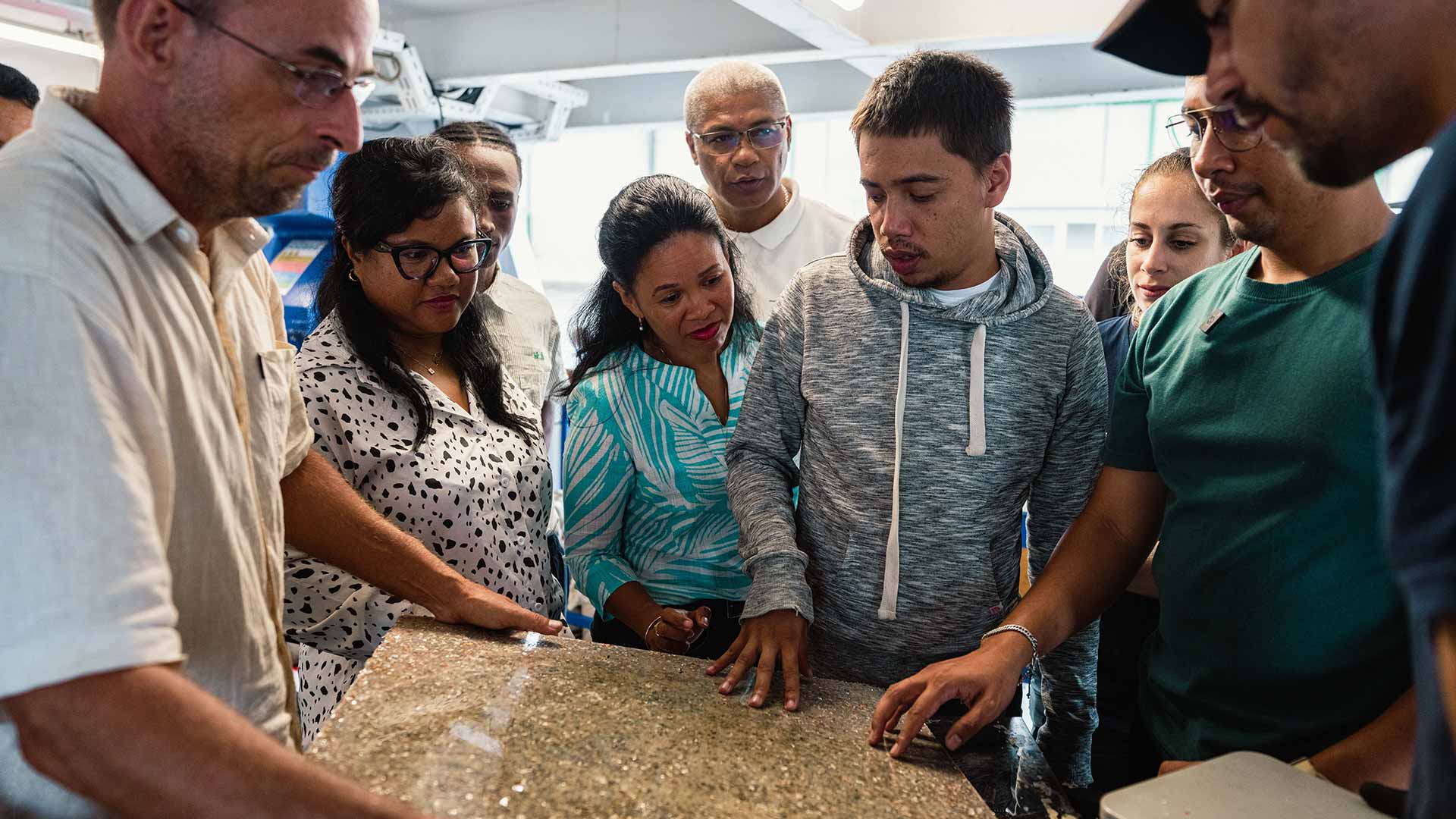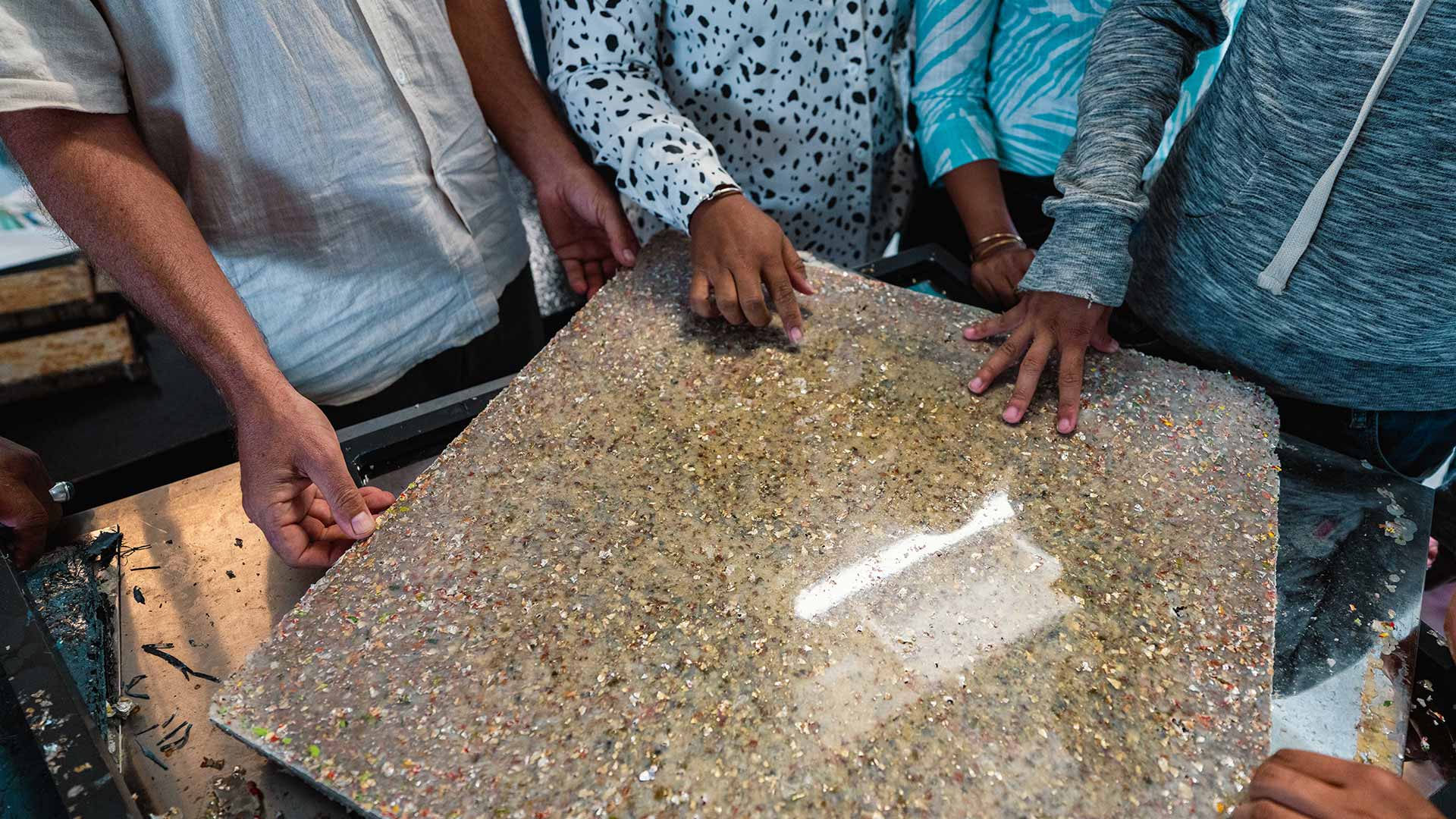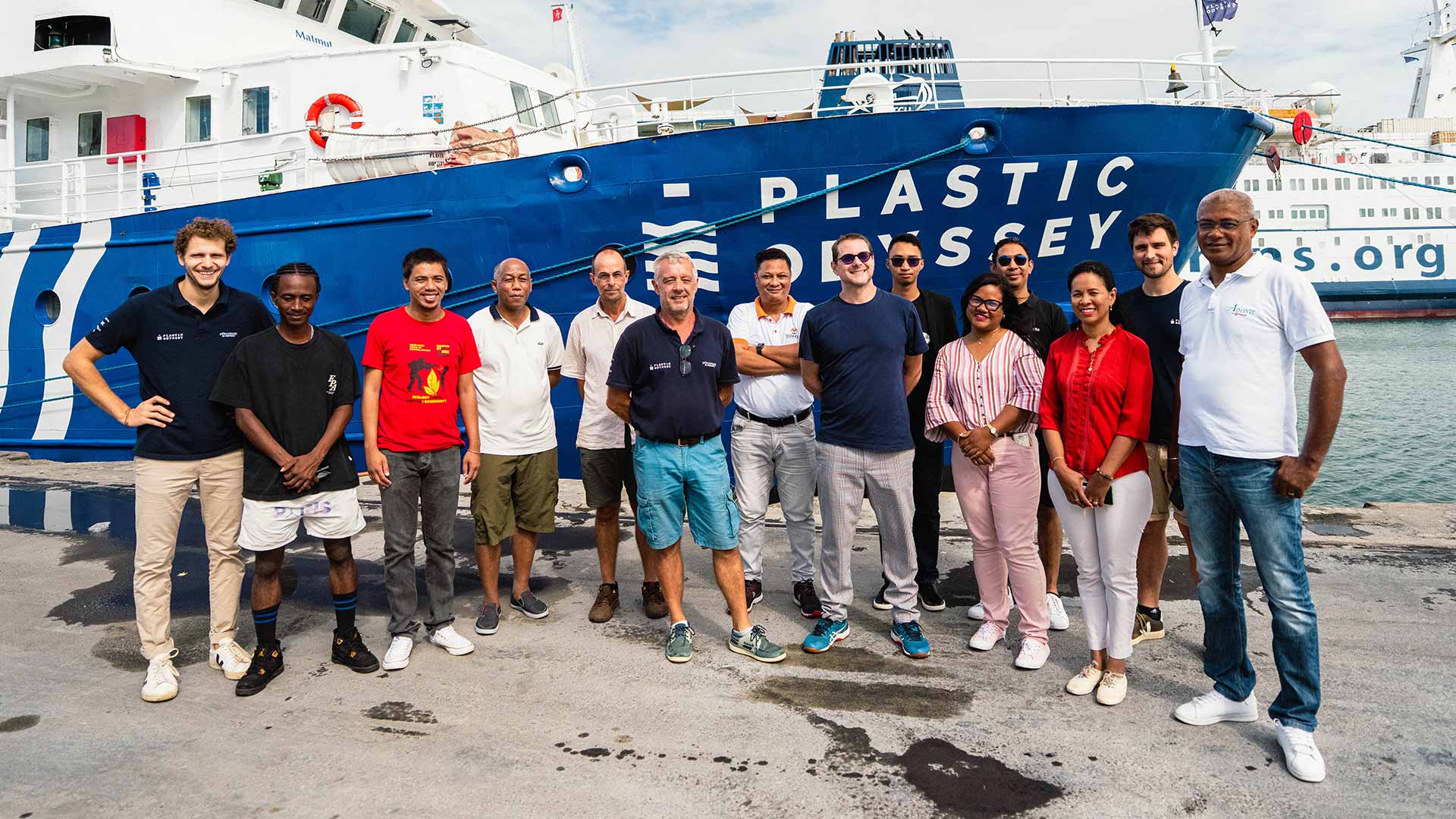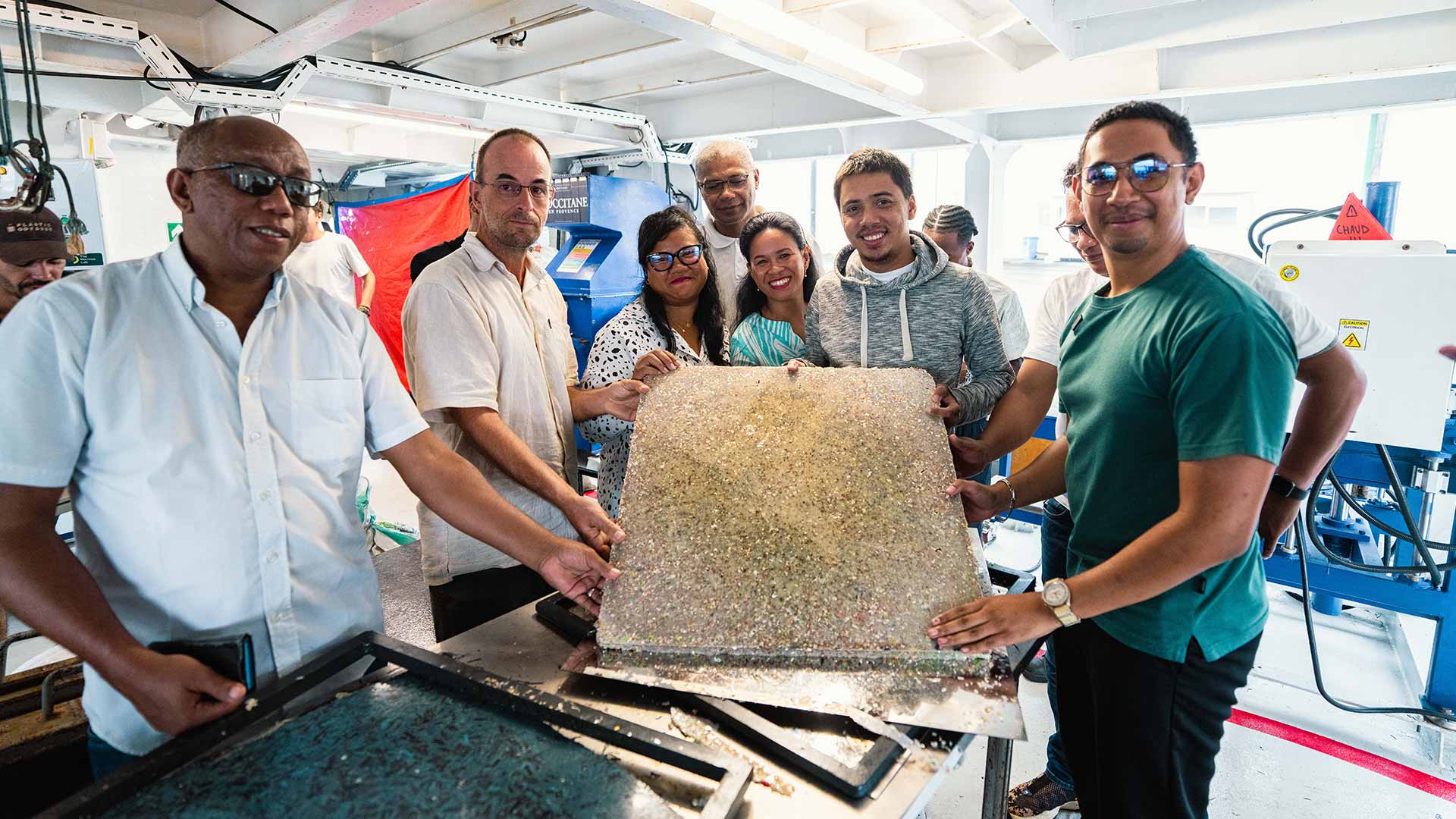
Madagascar: A Community Of Entrepreneurs Committed To Fighting Plastic Pollution
From April 30 to May 2, 2024, Plastic Odyssey held its 26ᵉ OnBoard Laboratory session in Toamasina, Madagascar’s main port on the island’s east coast. For three days, entrepreneurs from the capital Antananarivo, Antsirabe and the Tamatave region took part in practical exchanges on plastic recycling and the circular economy.
26ᵉ edition of the OnBoard Laboratory – Toamasina, May 2025
Some of them had already been part of the Plastic Odyssey community for several years; for others, it was their first concrete contact with the tools, machines and feedback shared on board the ship.
The local context is particularly difficult: Madagascar is one of the poorest countries in the world.
- 80% of the population lives on less than $2 a day
- Only 10% of Malagasy have a formal job
- 15% have access to electricity (6% in rural areas)
- And only 28% of households have running water
Meet the Entrepreneurs
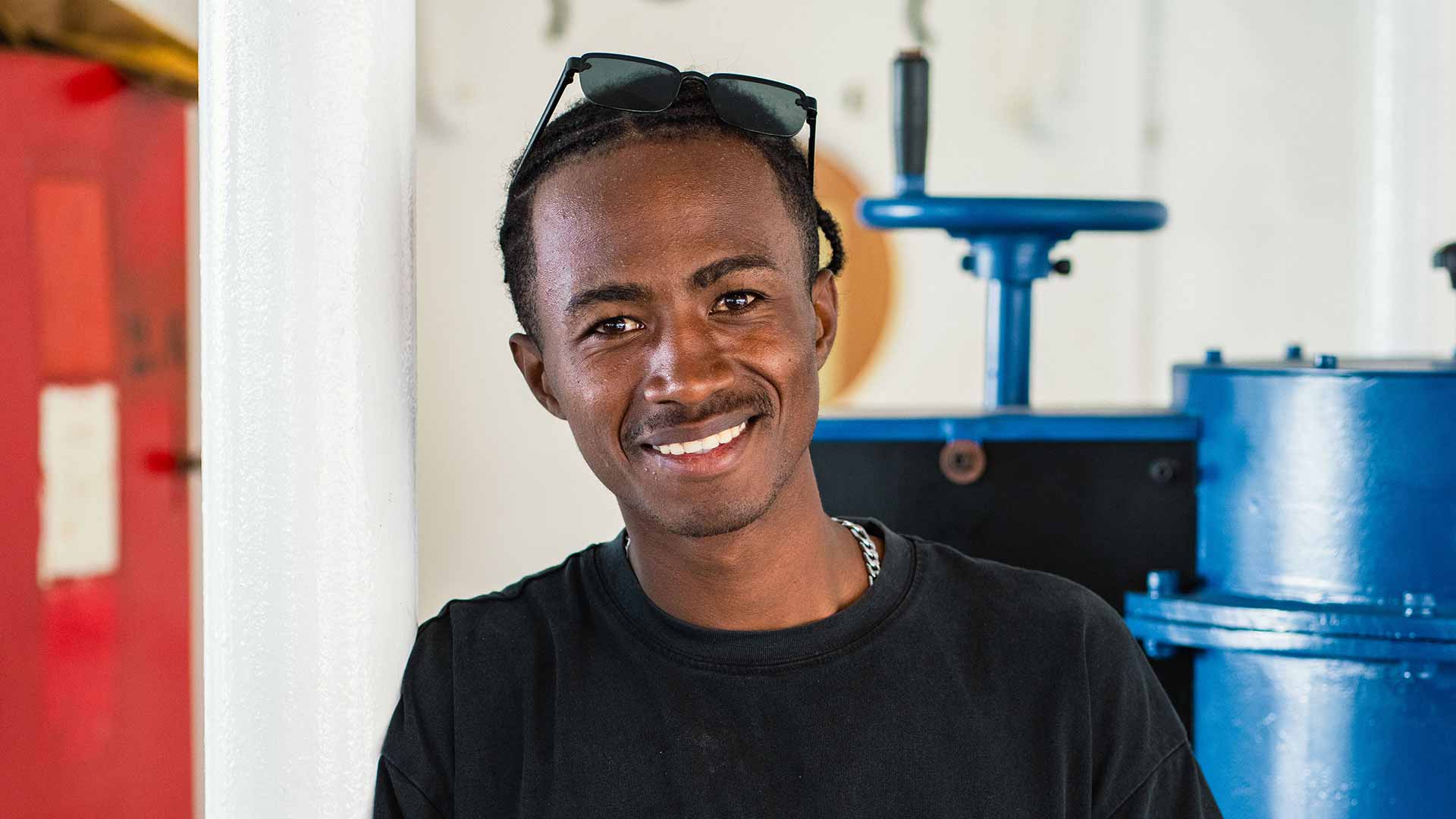
Modeste Heriniaina Rafanomezantsoa – R’art Plast
Born within the Hanavao incubator (Rubis Incubateur) in Antananarivo, R’art Plast is a project founded in 2020 by five young people from underprivileged neighborhoods, driven by the same objective: to transform plastic waste into useful, meaningful objects.
What makes them special? Combining craftsmanship, design and social impact. Working with designers such as Alexandre Echasseriau, they create everyday objects such as stools, lamps, cubbyholes, tiles and paving stones from recycled plastic. But not just any old way: the R’art Plast team has integrated three plastic processing techniques, giving them great flexibility in production:
- Polyfloss (cotton candy made from PET and PP plastics),
- Thermocompression, using preheated molds
- Manual injection with a Precious Plastic press,
Their flagship creations include plastic wool bags and rugs made from Polyfloss fiber, developed with the support of The Polyfloss Factory. The project is based on a craftsman’s approach to production, which gives them a high degree of flexibility while maintaining the same high standards of quality.
Raw materials come mainly from local landfill sites, via the direct purchase of plastic from informal collectors, an approach that generates an immediate social impact. Recently, R’art Plast also began working with Star, collecting their waste and selling recycled products directly to the company, thus closing a local recycling loop.
From April 30 to May 2, during the OnBoard Laboratory program organized on board the Plastic Odyssey ship in Tamatave, Modeste was able to reinforce its technical knowledge and benefit from new networking opportunities. Following the program, part of the Plastic Odyssey team travelled to Antananarivo to visit the R’art Plast workshop and foster new synergies.
Highlights included a joint visit with Modeste to the Ultramaille textile factory, which employs nearly 1,000 people. The aim: to explore outlets for the recycled plastic fiber produced by R’art Plast, particularly in the textile and furniture sectors. This is the first step towards scaling up and structuring the project on an industrial scale.
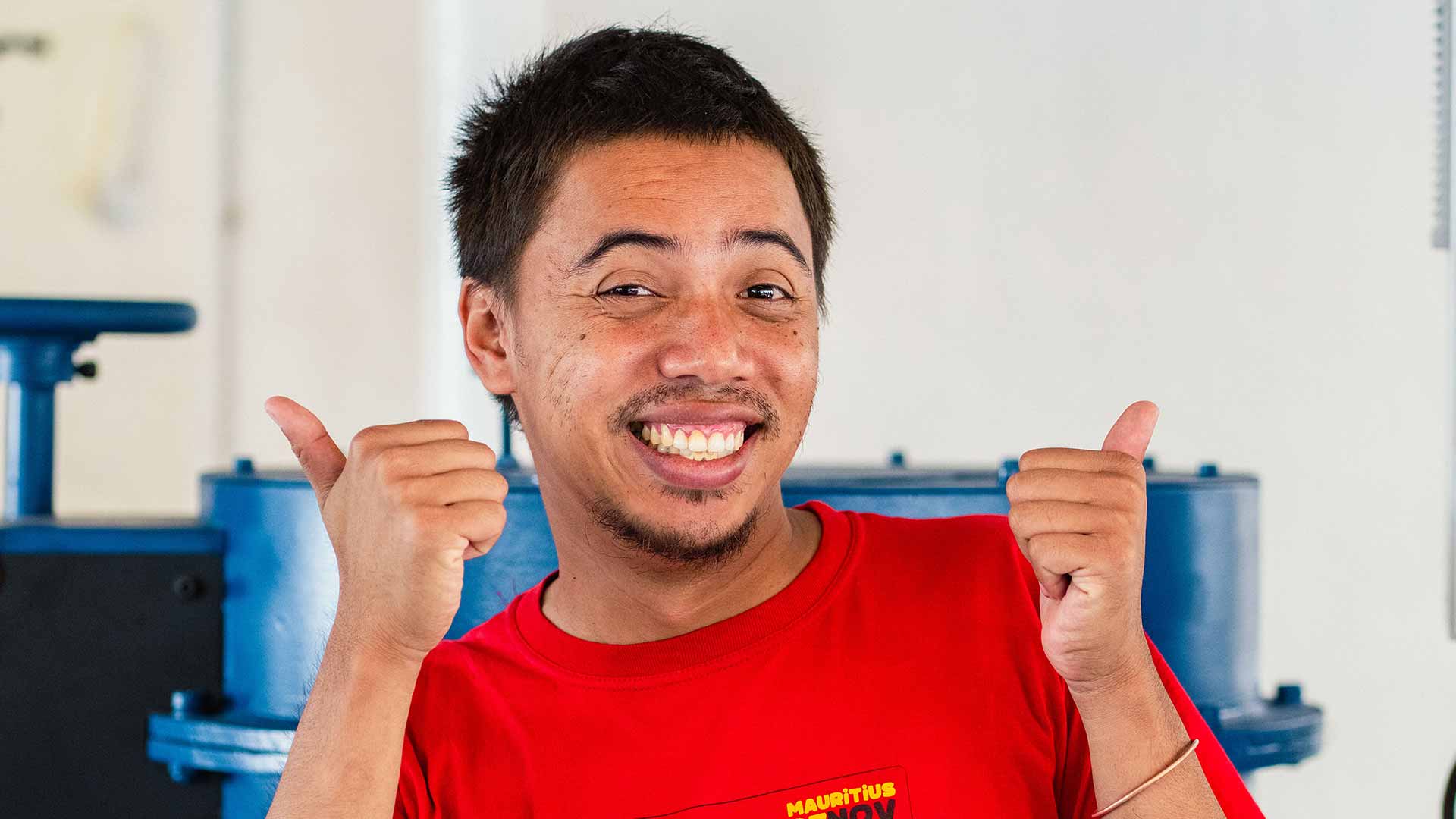
Ystalien Wang Kine Samaro – Recycl’anay
Based in Toamasina, Ystalien has been running the Recycl’anay project since 2017, a community initiative that combines waste reclamation, awareness-raising and civic engagement. The collective’s first activities focused on handcrafting objects from recycled materials: paper transformed into notepads, plastic into jewelry, or biowaste into compost. These initial actions have enabled them to raise awareness among the local population while experimenting with the creation of new channels.
Over the years, Recycl’anay has evolved into a key player in environmental awareness in Toamasina, thanks in particular to a number of partnerships, including a particularly active one with the Alliance Française. Today, they run awareness-raising campaigns in schools, organize clean-up events, and support other project leaders in recycling and the circular economy.
Among their new ideas is the creation of a vermicomposting system based on recycled plastic, combining their skills in biowaste treatment and manufacturing. Their ambition is now clear: to move to a semi-industrial scale, to structure a local recycling industry, and to make Recycl’anay a genuine platform for the commitment of Madagascar’s youth. A place where we learn, where we act, and where waste becomes a resource.
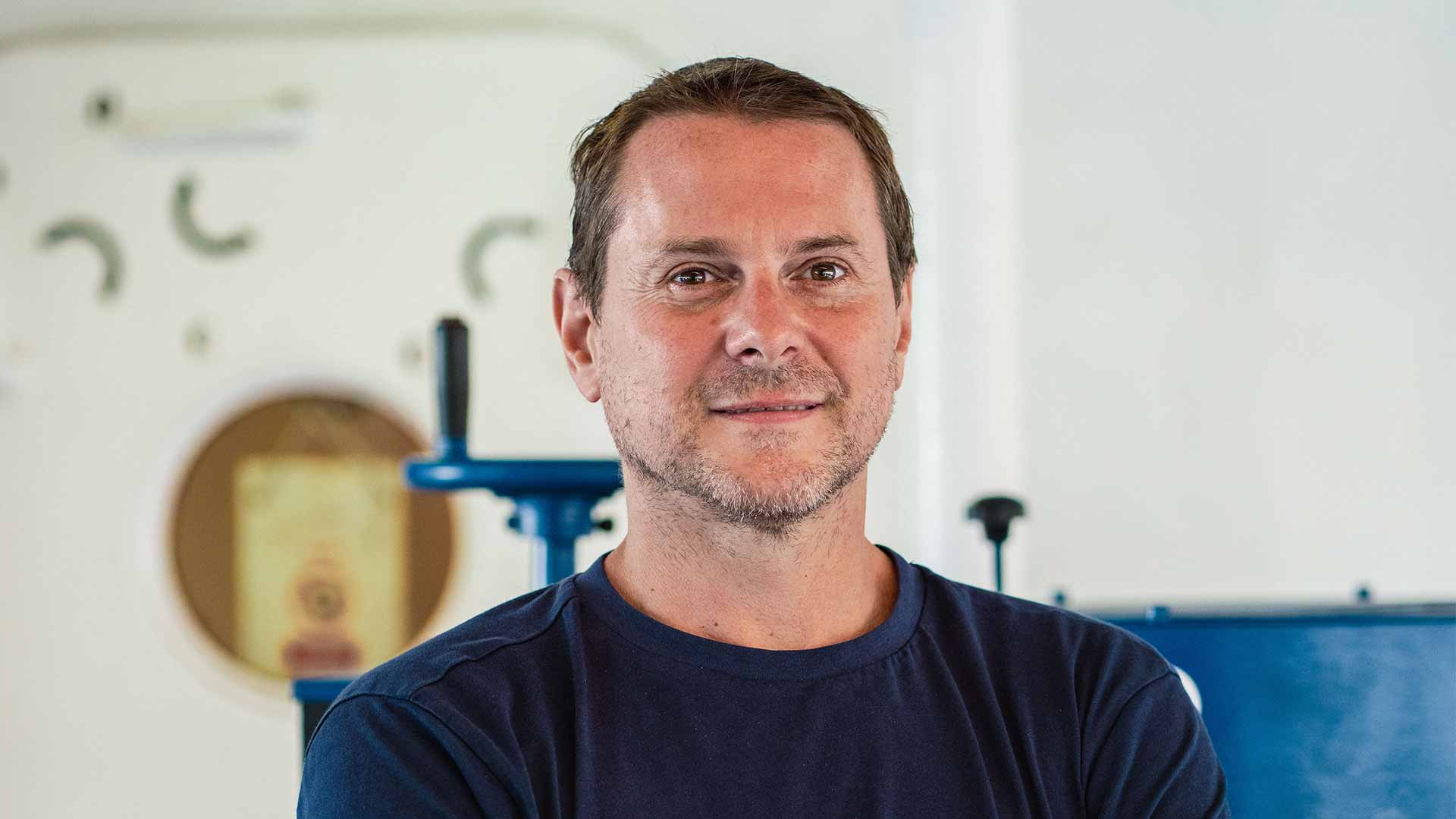
Johann Pless – STCV (Solutions de Tri, Collecte et Valorisation)
STCV was founded by Gaël, a Franco-Malagasy, in 2022 in Antananarivo. Since then, her husband Johann Pless has joined her as Business Developer, to structure and expand the business, while supporting the private sector’s transition to more responsible waste management. At the same time, Johann is involved with the Malagasy hotel federation, where he contributes to efforts to reduce the use of plastic in tourism.
STCV’s beginnings were marked by an ambitious attempt to manage municipal waste bins, a project that was quickly abandoned due to its complexity. The team then refocused on a more accessible target: industrial companies. It now offers them subscription packages for the collection of waste (plastics, cardboard, batteries, etc.), accompanied by treatment certificates, useful in a CSR logic.
Every month, STCV collects and processes around 20 tonnes of flexible plastics and 15 tonnes of other waste, mainly paper and cardboard, which is recycled into environmentally-friendly briquettes for fires. The plastic is washed by hand, then ground at 25 kg/hour. The company also makes some products in woven bags, from recycled materials.
Aware of the lack of local “offtakers” for recycled material, Johann and Gaël want to develop new processing solutions to create value in Madagascar itself. A mobile application inspired by a Lebanese model (Beirut) has also been tested to encourage households to sort their waste, but its take-up is still marginal.
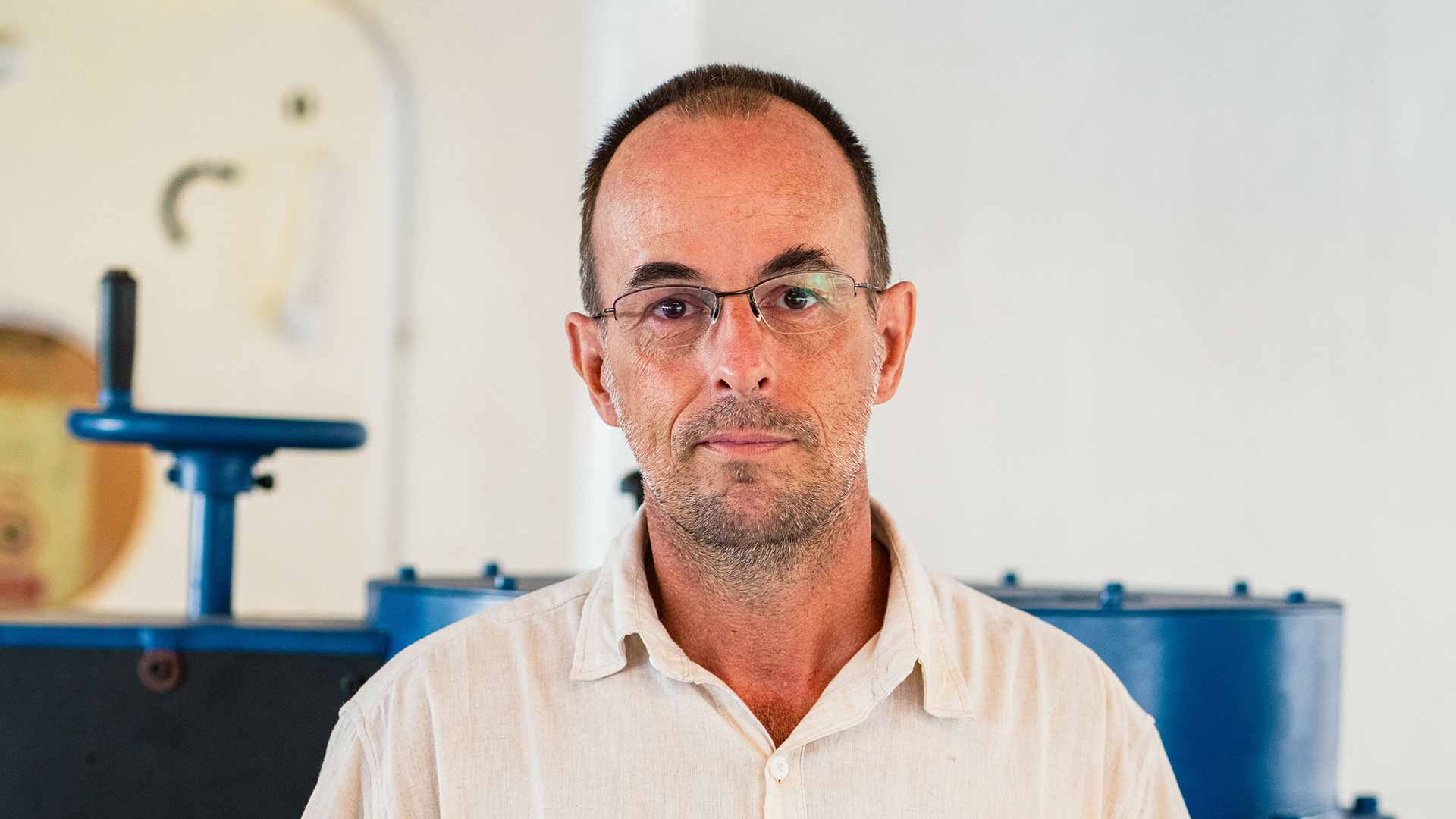
Pieter Vranckx – Omni Verdi
Pieter Vranckx, a Belgian engineer based in Toamasina, is an entrepreneur with a passion for ecological transition. After working for 15 years in Brazil on reforestation projects, he arrived in Madagascar with a view to continuing this environmental mission. He began by marketing biodegradable nursery pots and became involved in forest conservation actions.
Faced with growing pressure on wood resources, the company is looking at sustainable alternatives, notably through the use of recycled plastic. With this in mind, he launched the construction of a factory in Toamasina, dedicated to the manufacture of furniture from recycled plastic by extrusion-compression.
Its objective is ambitious: to reach a processing capacity of 5 tonnes per day. To this end, it has already invested in a complete line of industrial equipment:
- Three shredders
- Two extruders for composites and a direct extrusion line
- Two hydraulic presses of 60 and 200 tons with moulds for boards of 125 x 30 cm
- A system for washing plastic waste
He also designed specialized molds for the production of school furniture: tables (25 x 60 cm) and chairs (23 x 30 cm), for export and local NGOs. Eventually, the extrusion-compression unit should produce up to 2 tonnes of recycled boards a day, to be used for fencing, furniture or construction for low-income households.
Pieter would also like to work on innovative applications, such as the manufacture of boxes for rearing black soldier fly larvae, in kits that can be dismantled. It is also exploring the recycling of aluminum-containing plastic waste, a stream that is currently little processed in the country.
Last but not least, the Group has been experimenting with a solar furnace in Tuléar to melt flexible plastics — capable of processing 200 kg/day — a prototype that will remain in the pilot phase, but which bears witness to its inventiveness and capacity for local innovation.
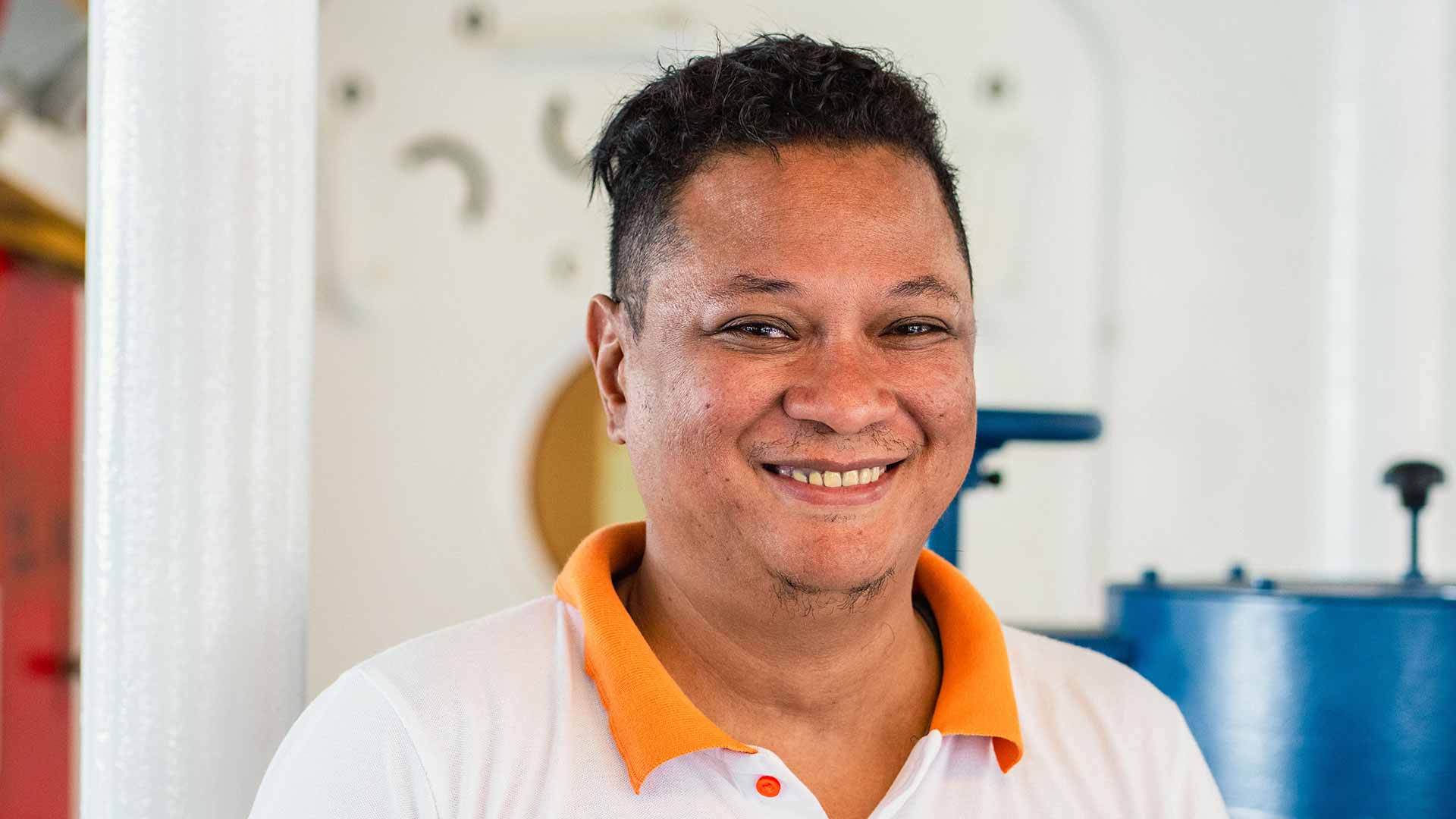
Toki Rabefiringa – Technopet & CMP
Toki Rabefiringa is responsible for organization, production and quality at Technopet, an Antananarivo-based company specializing in the manufacture of PET preforms for bottling.
Technopet was launched in 2009, with a PET preform production capacity of 80 tonnes per year. In 2018, Technopet took a strategic step forward by investing $2 million, enabling it to multiply its capacity by 30, to 2,500 tonnes a year. In a local market still largely dominated by imports, and fairly technical due to the need to obtain food grade (6,500 tonnes of PET preforms come from Mauritius every year), Technopet is banking on local production.
Aware of the environmental stakes and opportunities linked to the circular economy, Toki is initiating a collection system for PET plastic waste, primarily post-industrial, at the end of 2023. In just a few months, 170 tonnes of PET were recovered, some of which was exported, pending local recycling solutions.
A sister company, CMP, was created in 2024 to expand processing capabilities:
- Blowing PET preforms to produce ready-to-use bottles
- Injection molding of HDPE products (cups, basins, etc.)
- Start of a plastic recovery activity, with 5 tonnes collected and recycled in the first year
Toki is now aiming to increase its collection to 25 tonnes per month, by developing more refined sorting systems (by color, in particular) and extending its collection to post-consumer products, which are still relatively unstructured in Madagascar.
At the Onboard Laboratory, Toki offered to make available some of its under-utilized equipment, including shredders that are idle 2-3 days a week, to support partner initiatives or pilot projects in the country.
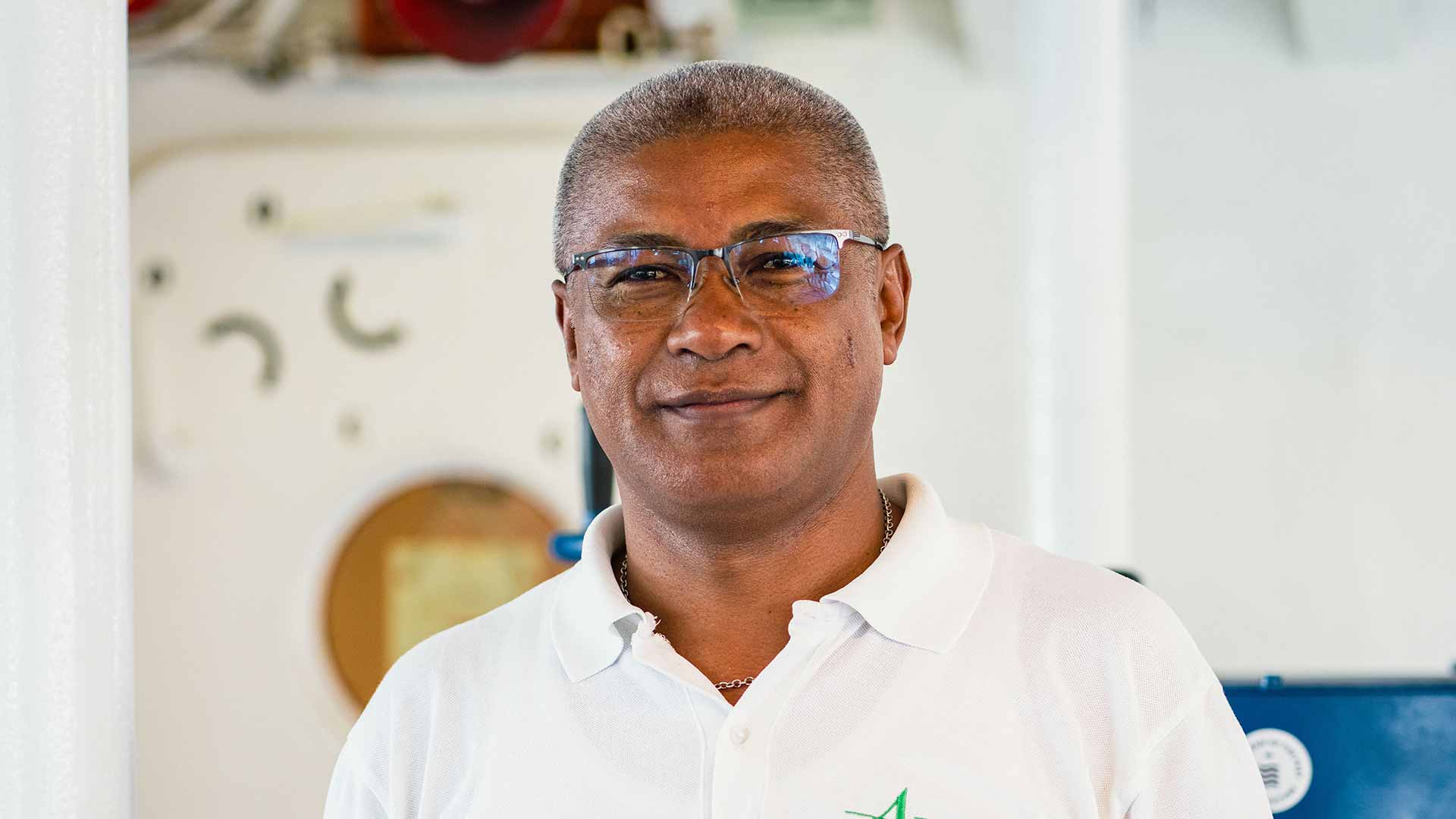
Zo RABETRANO – Adonis
Zo Rabetrano is Regional Director of Adonis, a major player in the treatment of hydrocarbon waste in Madagascar. With over 130 employees divided between Tananarive (100 people on a 3-hectare site) and Tamatave (30 employees), the company has an advanced industrial infrastructure, including seven mobile workshop trucks criss-crossing the island to carry out cleaning operations in the most remote areas.
Adonis collects and treats hydrocarbon effluents from industrial and petroleum activities: cleaning of service stations (nearly 340 on the island, 90% of which are treated by Adonis), storage tanks, garages, ships (MARPOL) and other exposed infrastructures. In Tamatave, a decantation station enables initial sludge separation. The waste is then transported to the Tana treatment center, where a thermal process separates the hydrocarbon fractions.
Heavy fuel oil is resold to plants equipped with industrial boilers, constituting a profitable part of the business, while sediments and hydrocarbonized water are treated using biological processes. A standard-compliant incinerator completes the system.
For some time now, Adonis has been faced with a growing demand for plastic waste processing, particularly from its industrial customers (garages, service stations, factories, etc.). This incoming demand has led the company to explore new solutions, in particular pyrolysis. Today, Adonis shreds some of this plastic waste (from garages in particular) and resells it, mainly in Tana or abroad, but the intention is clear: to develop a more complete, circular, local processing solution.
At the same time, a pilot project is being considered on the east coast of Sainte-Marie, in partnership with CetaMada, to recycle stranded plastic waste. Adonis sees pyrolysis as a serious way of meeting the needs of its industrial customers, in particular the 20 Malagasy factories using heavy fuel oil, such as Castel (sodas, beers) or textile factories, which generate a significant quantity of non-compliant plastic waste (PET, LDPE…).
With its industrial base, logistical capacity and extensive network of customers, Zo Rabetrano is pursuing a diversification project into plastic recycling that could transform Madagascar’s waste treatment landscape over the long term, by filling a structural gap beyond PET alone.
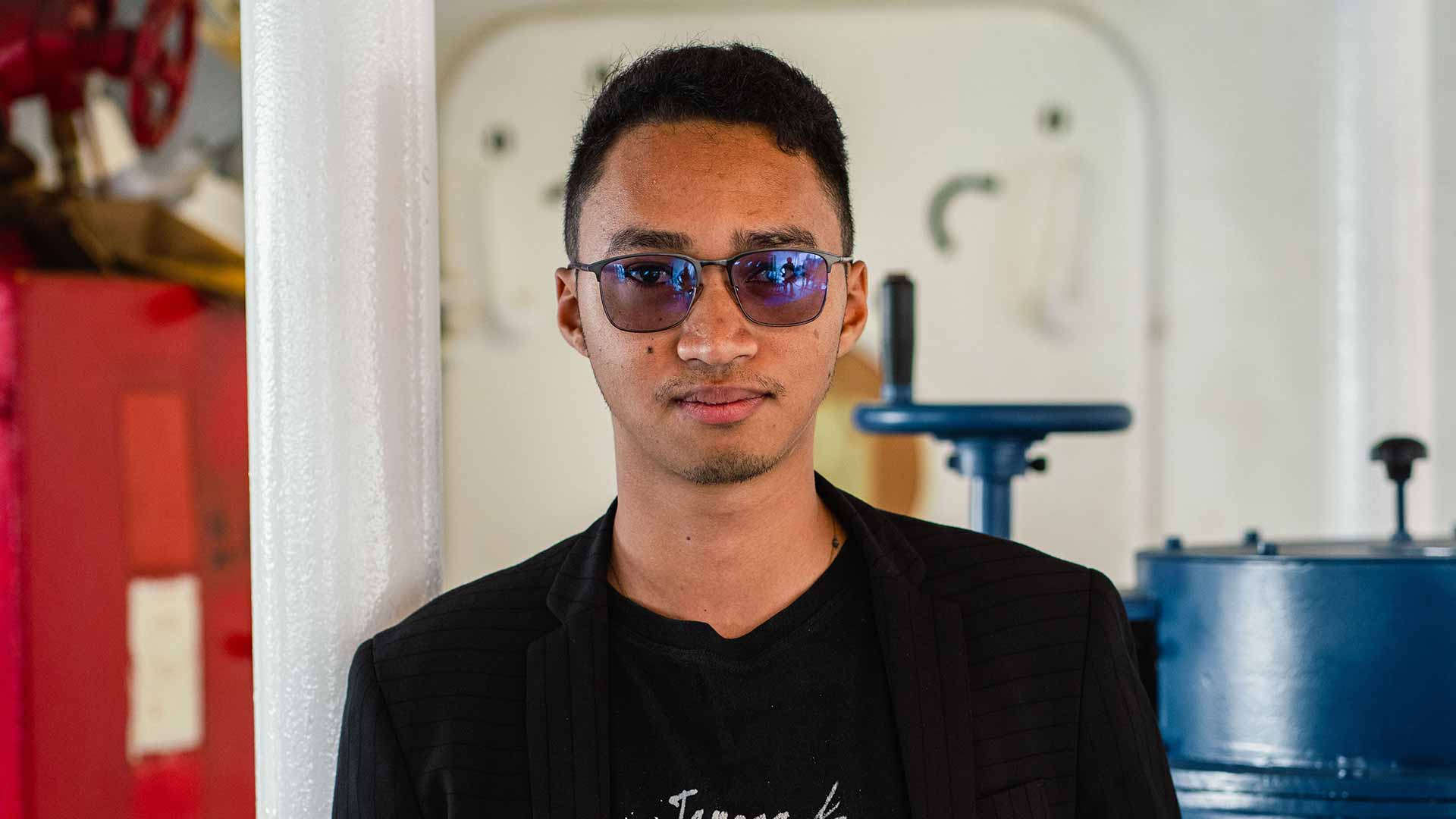
Tohnny ANDRIANTIANA – Diotontolo
Tohnny Andriantiana is the founder of Diotontolo, an organization committed to a cleaner environment – as its name suggests in Malagasy. Created in 2017 in partnership with GRET, the initiative has quickly established itself as a major player in ecological sanitation in Madagascar, with a simple but fundamental objective: to improve the sanitary conditions of populations.
In just a few years, Diotontolo has installed over 10,000 sanitary toilets across the country. Their model combines a concrete structure with mainly imported sanitary equipment (flushes, toilets…), which remains an economic and logistical obstacle to larger-scale deployment.
Aware of the limitations of this model, over the past year Tohnny has been looking at ways of integrating recycled plastic into its sanitary solutions. With his team, he began experimenting with the fusion of PET and HDPE plastics to produce latrine components, with the ambition of designing a local, economical and sustainable alternative to imported equipment.
This transition to plastic recycling applied to sanitation could mark a new stage for Diotontolo, strengthening the resilience of their business model while recovering waste that is currently little or poorly managed. The OnBoard Laboratory program came at just the right time for Tohnny Andriantiana, enabling him to quickly become acculturated to different plastic recycling techniques.
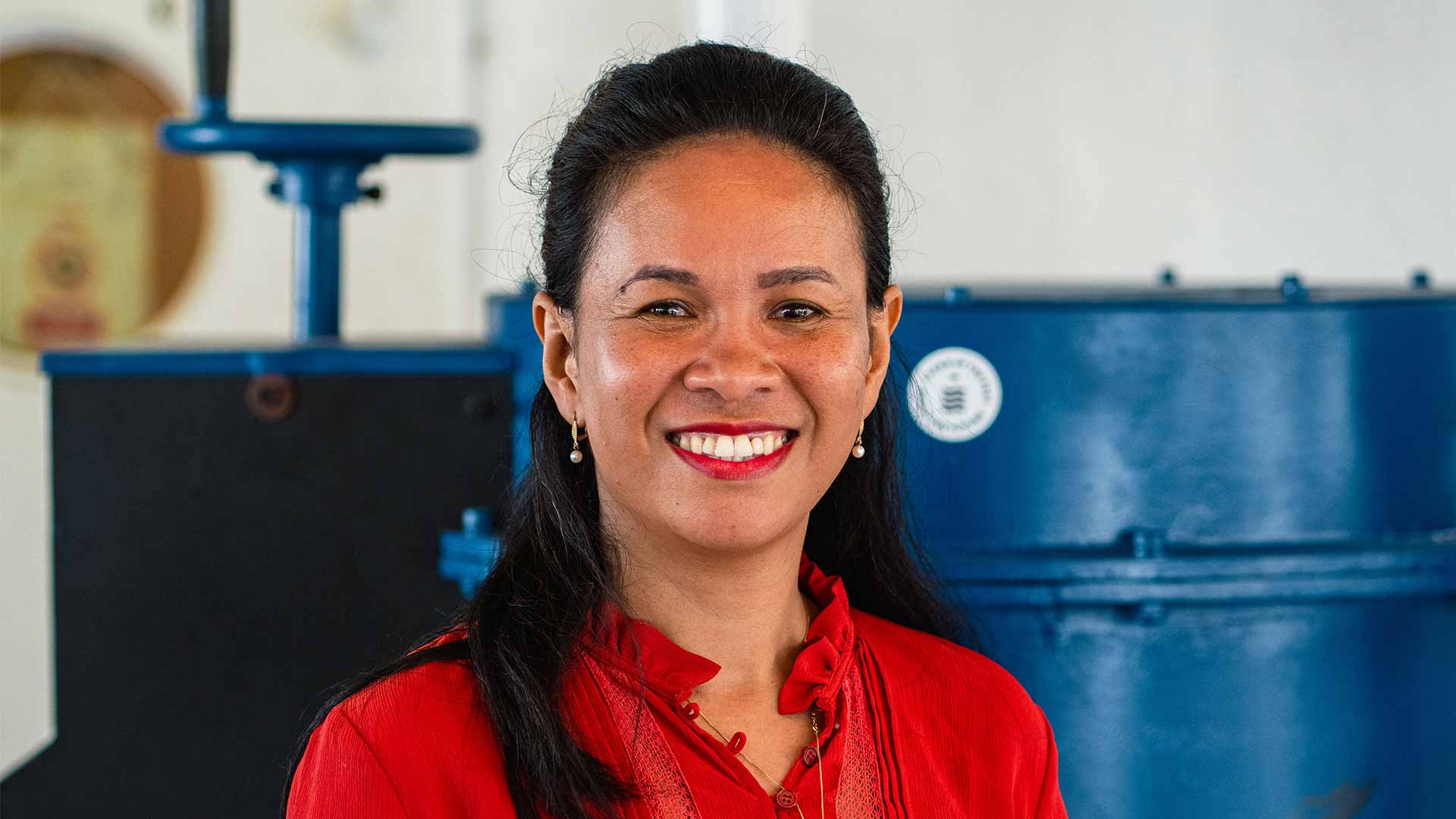
Mihajasoa Faly – Madacompost
Founded in 2010, Madacompost specializes in biowaste management. It now has 110 employees at four sites in Madagascar. The company is the flagship project in Madagascar for a number of organizations, including GRET and the GoodPlanet Foundation. Madacompost offers a home waste collection service for households and businesses. Waste is sorted at source into biodegradable and non-biodegradable, then collected first by operatives on foot, then by truck.
On the processing side, Madacompost valorizes bio-waste according to local agricultural crops: compost, vermicompost, shellfish meal, zebu horn… It also produces biofuel from paper, cardboard or sawdust.
For several years now, Madacompost has also been experimenting with recycling flexible plastic to make paving slabs. The technique, still traditional, uses a mixture of plastic, sand and waste oil. Around 50 tonnes are processed each year by a team of around ten people.
The company also has a strong social dimension, creating jobs for people in difficulty, and closely monitors its environmental impact through carbon tracking. It even resells part of its carbon credits, which account for the majority of the company’s revenues.
According to their data, 8% of household waste consists of plastic, which reinforces their interest in expanding their recycling activities. Taking part in the OnBoard Laboratory was an opportunity for Mihajasoa to discover new value-adding techniques and to imagine ways of improving their current workshop, or even moving on to a more structured scale.
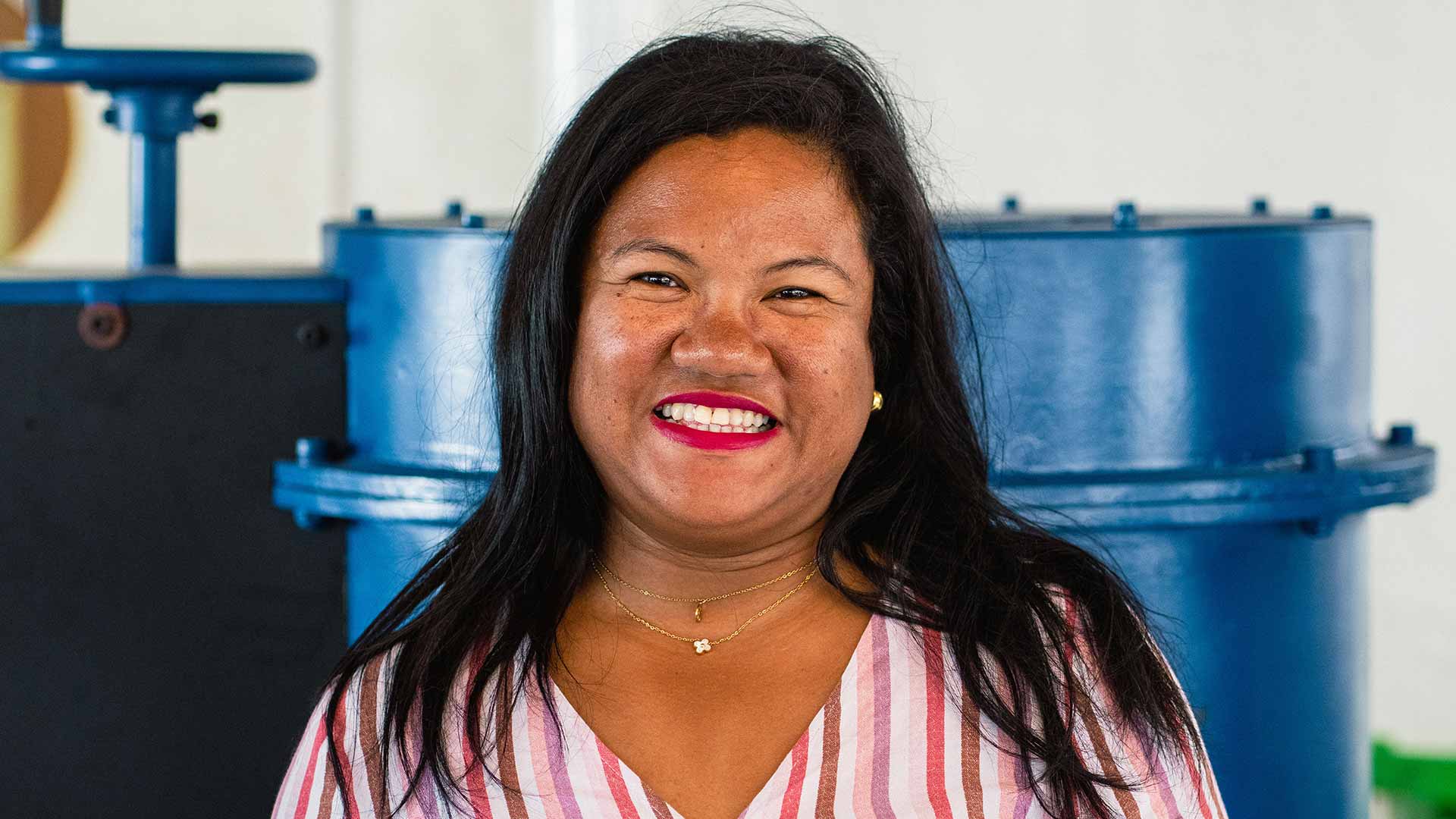
Fabbie Razafindrabe – GRET
Fabbie Razafindrabe came to represent GRET, a French NGO that has long been active in Madagascar, particularly in the fields of the environment, local development and waste management.
GRET is already supporting a number of initiatives, including Madacompost, one of their flagship biowaste projects. Today, Fabbie is increasingly interested in the plastics industry, with the idea of supporting future recycling projects.
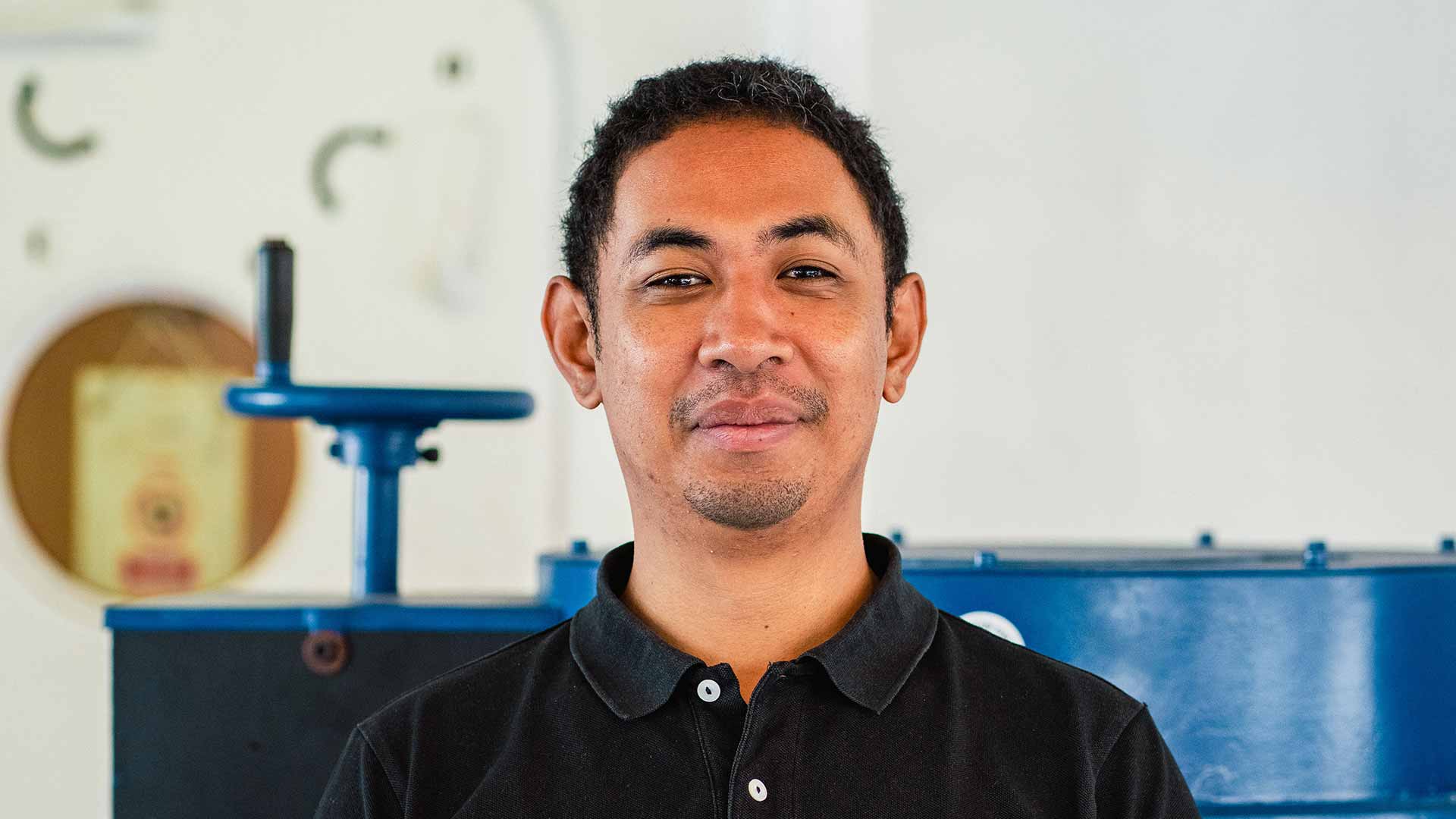
Zina RAMINOSONA – Andao Company
Zina created Andao Company in 2023 with the idea of transforming recycled plastic into school furniture. From his small workshop in Antananarivo, his 30-strong team makes chairs and tables from molded sheets of melted plastic. Around 500 kg of plastic is recycled every month.
The project works thanks to local sponsorship: companies finance furniture for schools, enabling the workshop to keep running while meeting a real need.
Before launching her company, Zina was already closely following Plastic Odyssey. He collected information and machine plans, and drew inspiration from projects shared online. The vessel’s stopover in Tamatave was an opportunity to test out ideas, exchange ideas with other project owners, and structure his business a little more. What’s next? Continue to produce locally, improve finishes, and why not develop a range of designer furniture.
In this complicated context, the OnBoard Laboratory has helped to create strong synergies between local players, to share solutions adapted to the Malagasy context, and to generate concrete ideas. Several participants have since applied to regional calls for projects to finance the next stages in the development of their initiative.

OnBoard Laboratory, our incubation program for recycling entrepreneurs
At each stopover on the expedition, the Plastic Odyssey vessel welcomes on board several local recycling entrepreneurs to exchange ideas and develop concrete solutions to combat plastic pollution.

